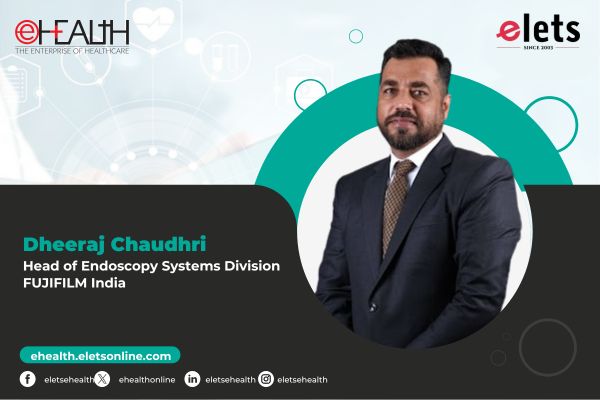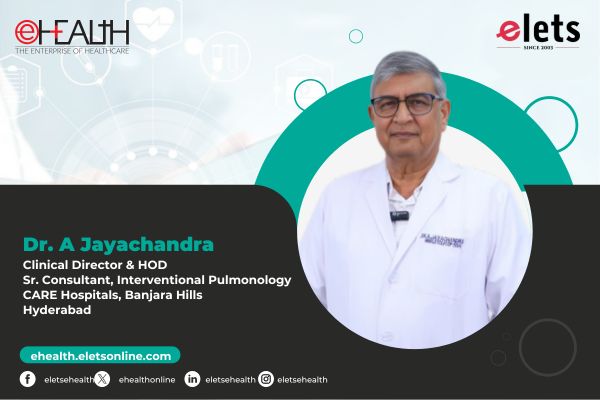
India’s healthcare landscape is evolving rapidly, propelled by initiatives such as the Ayushman Bharat Digital Mission, enhanced public health investment, and an assertive shift toward preventive, technology-enabled care delivery. However, while India is embracing AI in imaging and domestically manufacturing diagnostic equipment, the domain of respiratory diagnostics remains underdeveloped. Despite its enormous burden, respiratory care has yet to benefit from the full force of healthcare innovation.
The silent crisis: Undiagnosed asthma and missed opportunities
India is home to over 34.3 million asthma patients, yet an alarming 70% remain undiagnosed or misdiagnosed, according to the Lancet Global Burden of Disease Study (2021). This diagnostic gap persists primarily due to:

- A shortage of pulmonologists, especially outside Tier I cities
- Over-dependence on symptomatic evaluations rather than objective diagnostics
- Limited access to modern, scalable diagnostic platforms in primary care settings
Traditional methods like spirometry, while clinically valuable, are ill-suited for large-scale screening or nuanced assessments of overlapping pulmonary conditions like asthma-COPD overlap syndrome (ACOS) or early-stage interstitial lung disease (ILD).

Why the healthcare sector must step in
For medtech innovators, hospital administrators, and public-private healthcare partnerships, this scenario offers a critical opportunity to invest in next-generation pulmonary diagnostics that are non-invasive, AI-powered, and portable—solutions that match India’s scale and heterogeneity.

The technology transformation: From tertiary tools to primary-ready platforms
Innovative systems such as high-definition flexible bronchoscopes, AI-integrated imaging platforms, and cloud-enabled data capture are redefining diagnostic pathways:

- Synapse 3D lung navigation systems assist interventional pulmonologists with the precise localisation of peripheral lesions
- AI-powered diagnostic platforms detect subtle patterns in imaging scans, enabling faster and more accurate decision-making
- Image-enhanced bronchoscopy helps in detecting early mucosal changes and evaluating airways in real-time
In operational environments, these technologies reduce procedure times, improve first-time diagnostic success rates, and limit unnecessary follow-ups—directly benefiting hospital efficiency, patient outcomes, and payer cost structures.
Bridging the urban-rural divide: Decentralising respiratory diagnostics
One of the most pressing mandates for healthcare leaders is equitable access. The future lies in deploying AI-integrated diagnostic tools at the primary care level, enabling frontline providers in Tier II/III cities and rural belts to screen, refer, and triage respiratory cases effectively.
This decentralised care model demands:
- Portable diagnostic kits that integrate with PHC and CHC networks
- Cloud-based imaging platforms for remote expert consultations
- Training modules for general practitioners on interpreting AI-assisted outputs
By integrating such platforms into Ayushman Bharat Health & Wellness Centres, India can reduce diagnostic latency, improve care coordination, and reduce the referral burden on tertiary centres.
Policy alignment and industry strategy: A joint agenda
To drive adoption at scale, stakeholders across the healthcare ecosystem, including government agencies, private hospitals, medtech companies, and health insurance players, must work together to:
- Incentivise innovation through diagnostic reimbursements under schemes like PM-JAY
- Expand digital health infrastructure funding to include AI-based diagnostics
- Enable fast-track regulatory approvals for indigenous pulmonary imaging systems
- Launch pilot programmes in high-burden states to validate decentralised models
India’s moment to lead in preventive pulmonology
India is uniquely positioned to become a global case study in tech-enabled respiratory care, especially as the global AI in medical imaging market hits $1.1 billion (2023), with India among the top adopters. By embedding diagnostic intelligence into everyday care, India can not only mitigate chronic disease burden but also influence how developing nations reframe their healthcare delivery architecture.
Read more:
Final thought: The business of breathing better
From an industry standpoint, the demand for smart, scalable respiratory diagnostics is no longer just a medical need, it’s a market imperative. Healthtech firms that focus on miniaturised devices, AI-first platforms, and interoperable diagnostic ecosystems will lead the next growth wave. The shift from reactive to predictive respiratory care isn’t optional—it’s inevitable.
With the right investments, partnerships, and policy support, India can turn its respiratory disease burden into a beacon of global healthcare transformation.
Views expressed by: Dheeraj Chaudhri, Head of Endoscopy Systems Division, FUJIFILM India
Be a part of Elets Collaborative Initiatives. Join Us for Upcoming Events and explore business opportunities. Like us on Facebook , connect with us on LinkedIn and follow us on Twitter , Instagram.
"Exciting news! Elets technomedia is now on WhatsApp Channels Subscribe today by clicking the link and stay updated with the latest insights!" Click here!
















